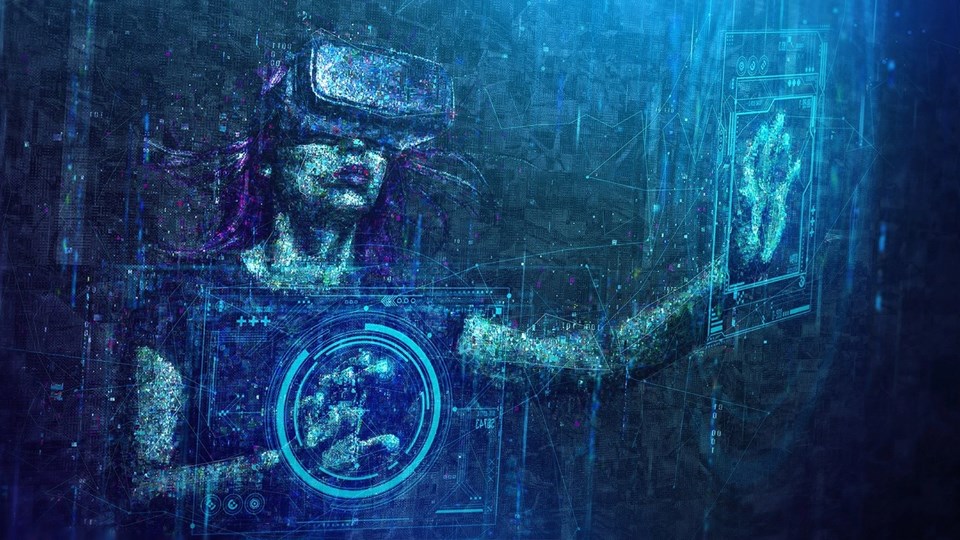A new study shows that people recall more information when they learn by using next-generation tools like virtual reality than they do using traditional options like standard computers.
Researchers from the University of Maryland conducted the first-ever in-depth analysis comparing how people learn through virtual, immersive environments against more traditional platforms and found that people remember information better if it is presented to them in a virtual environment.
“This data is exciting in that it suggests that immersive environments could offer new pathways for improved outcomes in education and high-proficiency training,” Amitabh Varshney, professor of computer science and dean of the College of Computer, Mathematical, and Natural Sciences at UMD, said in a statement.
In the study, the researchers used a concept called memory palace or spatial mnemonic encoding - where participants recall an object or item by placing it in an imaginary physical location like a building or a town. This takes advantage of the human brain’s ability to spatially organize thoughts and memories.
“Humans have always used visual-based methods to help them remember information, whether it's cave drawings, clay tablets, printed text and images, or video,” Eric Krokos, a doctoral student in computer science and lead author on the paper, said in a statement. “We wanted to see if virtual reality might be the next logical step in this progression.”
The researchers used 40 volunteers, the majority of which were University of Maryland students that were unfamiliar with virtual reality. The participants were split between a group that viewed information first through a VR head-mounted display and then on a desktop computer and a group that viewed the information in the opposite order.
Both groups were asked to familiarize themselves with printouts of well-known faces like Abraham Lincoln, the Dalai Lama, Arnold Schwarzenegger and Marilyn Monroe. The groups were then shown the faces using the memory palace format with two imaginary locations - an interior room of an ornate palace and an external view of a medieval town.
Both groups navigated each memory palace for five minutes, where the desktop participants used a mouse to change their viewpoint and the VR group turned their heads from side to side and looked up and down.
The users were then asked to memorize the location of each of the faces shown, where half of the faces were positioned in different locations within the interior setting. For example, Oprah Winfrey appeared at the top of a grand staircase, with Stephen Hawking a few steps down, followed by Shrek. On the ground floor, Napoleon Bonaparte's face sat above a majestic wooden table, while Tthe Rev. Dr. Martin Luther King Jr. was positioned in the center of the room.
In the medieval town, users viewed images that included Hillary Clinton’s face on the left side of a building, with Mickey Mouse and Batman placed at varying heights on nearby structures.
The scene then went blank for two minutes followed by each memory palace reappearing with numbered boxes where the faces previously had been. The participants were then asked to recall which face had been in which location.
“By visually navigating the scene, users could determine that 'Hillary Clinton is in the top left window and it looks like she is about 20 yards from where I am sitting’,” said Krokos, who conducted the user-study in the Augmentarium, a visualization testbed lab on the UMD campus that launched in 2015 with funding from the National Science Foundation.
The researchers observed an 8.8 percent improvement in recall accuracy using VR.
In post-study questionnaires, all 40 participants said that they were completely comfortable and adept in navigating a desktop computer to access information. All but two users said they preferred the immersive VR environment as a potential learning platform, while only two people said they felt uncomfortable using VR.
Many of the participants said the immersive "presence" while using VR allowed them to focus better, while 40 percent of the participants scored at least 10 percent higher in recall ability using VR over the desktop display.
“By showing that virtual reality can help improve recall, it opens the door to further studies that look at the impact of VR-based training modules at all levels - from elementary school children learning astronomy to trauma residents acquiring the latest knowledge in lifesaving procedures,” Varshney said. “We believe the future of education and innovation will benefit greatly from the use of these new visual technologies.”
https://www.rdmag.com/article/2018/06/virtual-reality-better-tool-memory...



